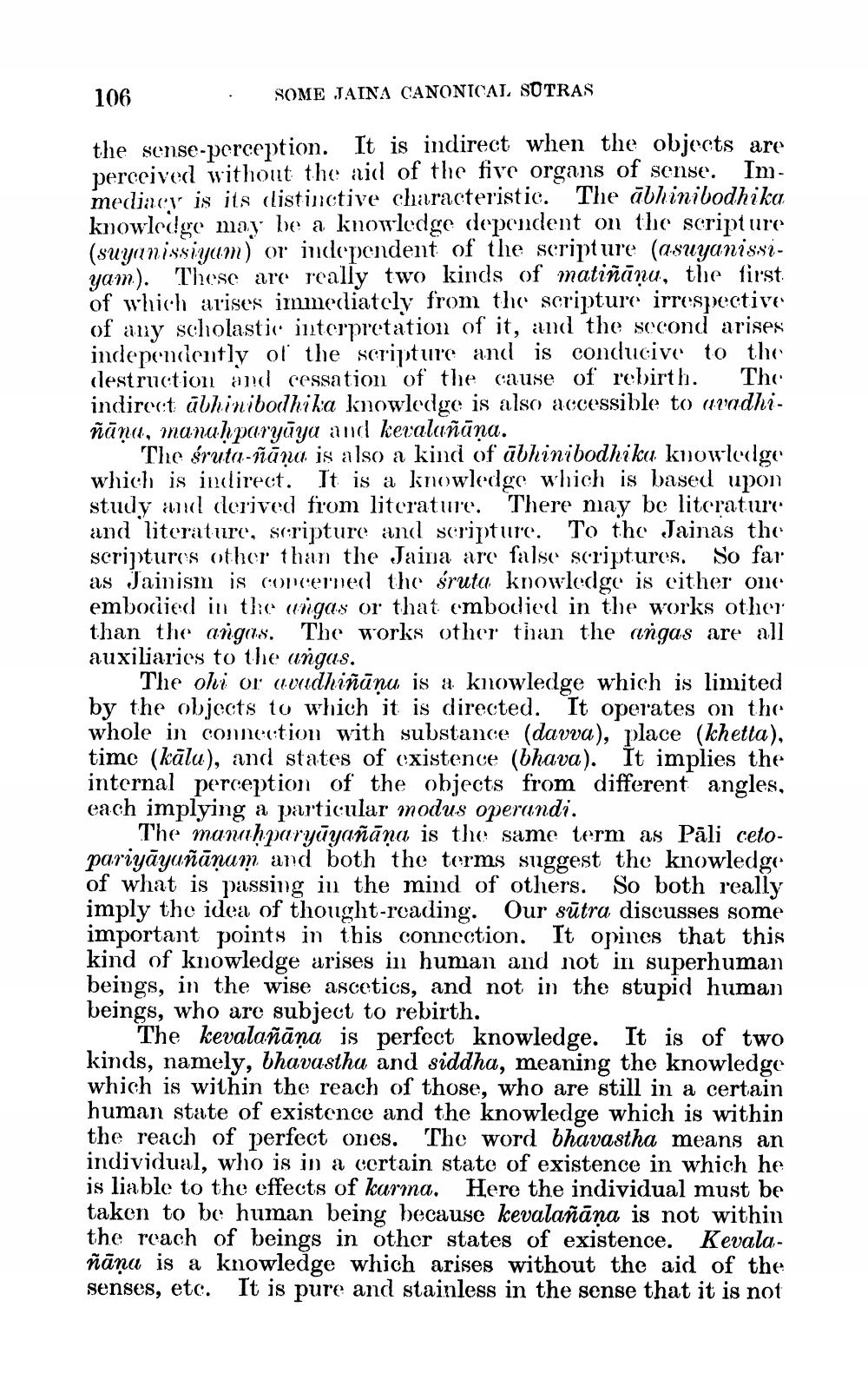________________
SOME JAINA CANONICAL SUTRAS
106
Im
the sense-perception. It is indirect when the objects are perceived without the aid of the five organs of sense. mediacy is its distinctive characteristic. The abhinibodhika knowledge may be a knowledge dependent on the scripture (suyanissiyam) or independent of the scripture (asuyanissiyam). These are really two kinds of matiñāņu, the first of which arises immediately from the scripture irrespective of any scholastic interpretation of it, and the second arises independently of the scripture and is conducive to the destruction and cessation of the cause of rebirth. The indirect abhinibodhika knowledge is also accessible to avadhiñana, manahparyŭya and kevalañana.
The śruta-ñana is also a kind of abhinibodhika knowledge which is indirect. It is a knowledge which is based upon study and derived from literature. There may be literature and literature, scripture and scripture. To the Jainas the scriptures other than the Jaina are false scriptures. So far as Jainism is concerned the śruta knowledge is either one embodied in the angas or that embodied in the works other than the angas. The works other than the angas are all auxiliaries to the angas.
The ohi or avadhiñāņa is a knowledge which is limited by the objects to which it is directed. It operates on the whole in connection with substance (davva), place (khetta), time (kālu), and states of existence (bhava). It implies the internal perception of the objects from different angles, each implying a particular modus operandi.
The manaḥparyāyañāṇa is the same term as Pāli cetopariyāyañāņam and both the terms suggest the knowledge of what is passing in the mind of others. So both really imply the idea of thought-reading. Our sutra discusses some important points in this connection. It opines that this kind of knowledge arises in human and not in superhuman beings, in the wise ascetics, and not in the stupid human beings, who are subject to rebirth.
The kevalañana is perfect knowledge. It is of two kinds, namely, bhavastha and siddha, meaning the knowledge which is within the reach of those, who are still in a certain human state of existence and the knowledge which is within the reach of perfect ones. The word bhavastha means an individual, who is in a certain state of existence in which he is liable to the effects of karma. Here the individual must be taken to be human being because kevalañana is not within the reach of beings in other states of existence. Kevalañāņa is a knowledge which arises without the aid of the senses, etc. It is pure and stainless in the sense that it is not




